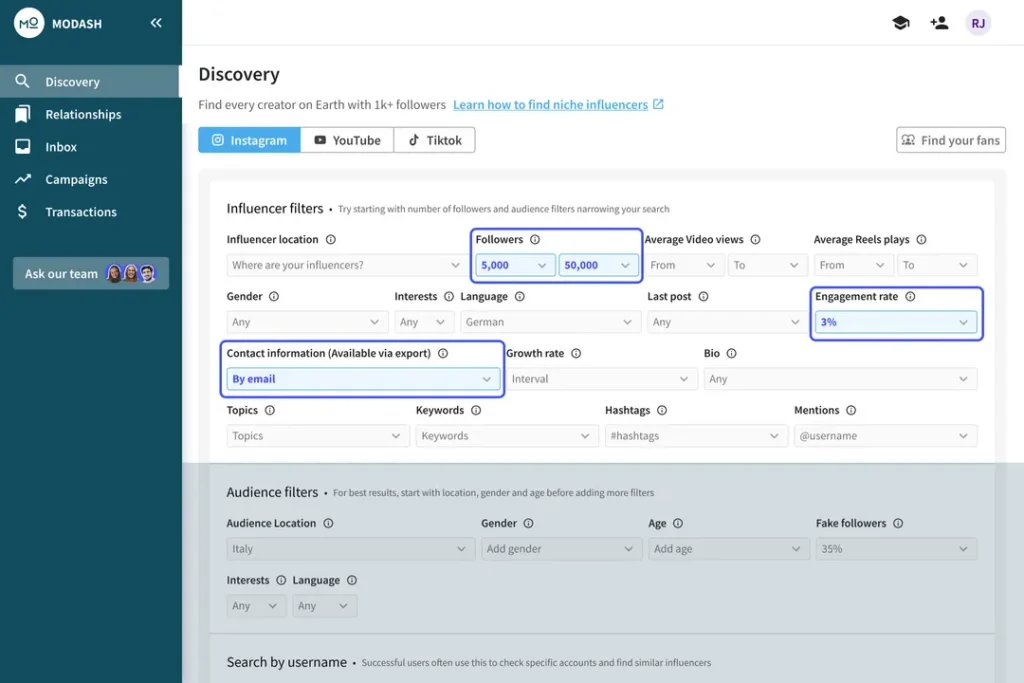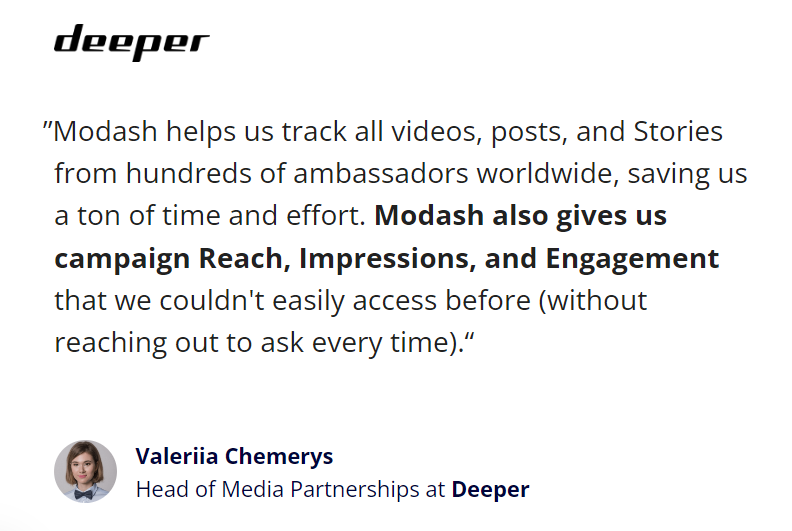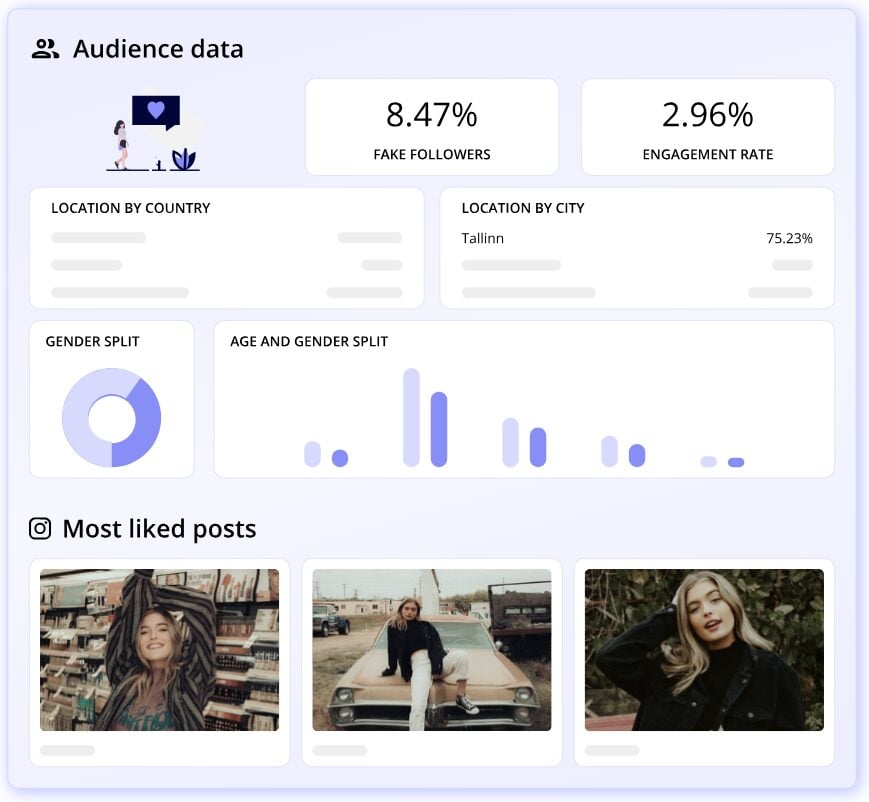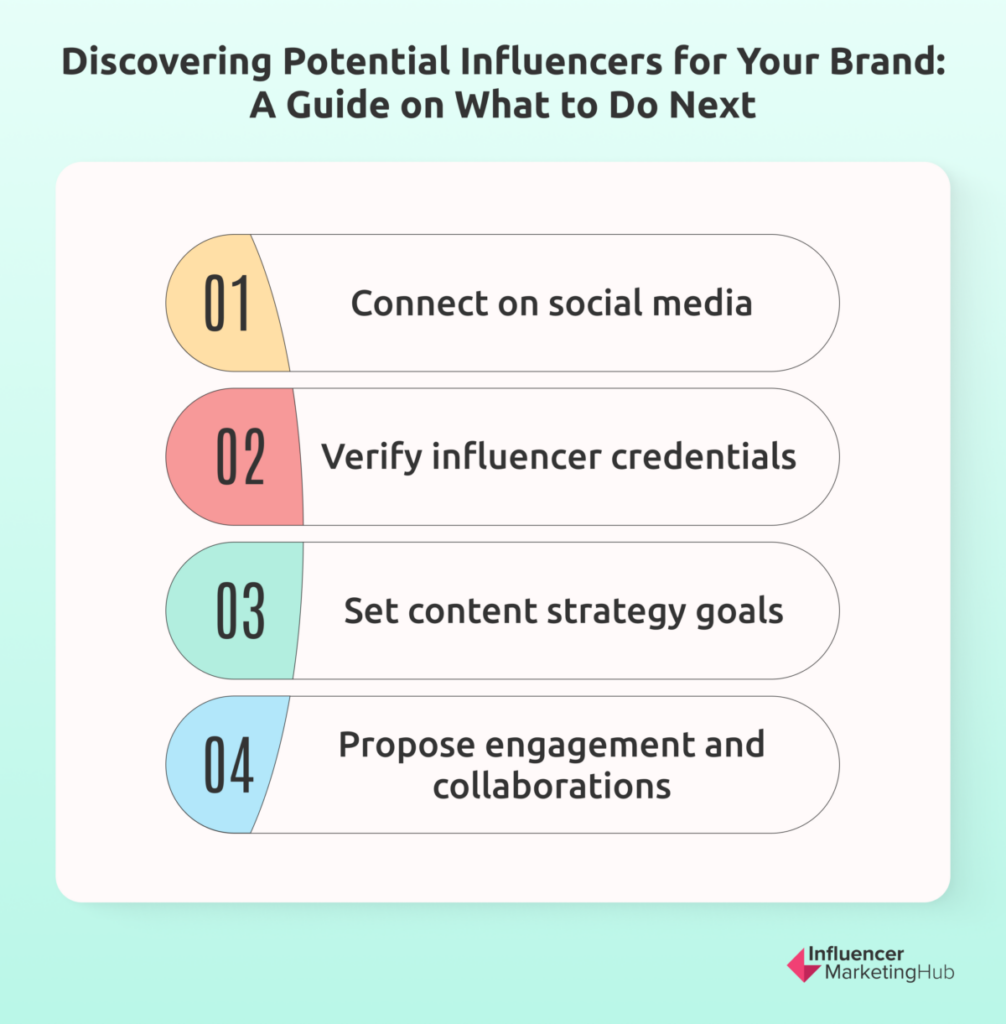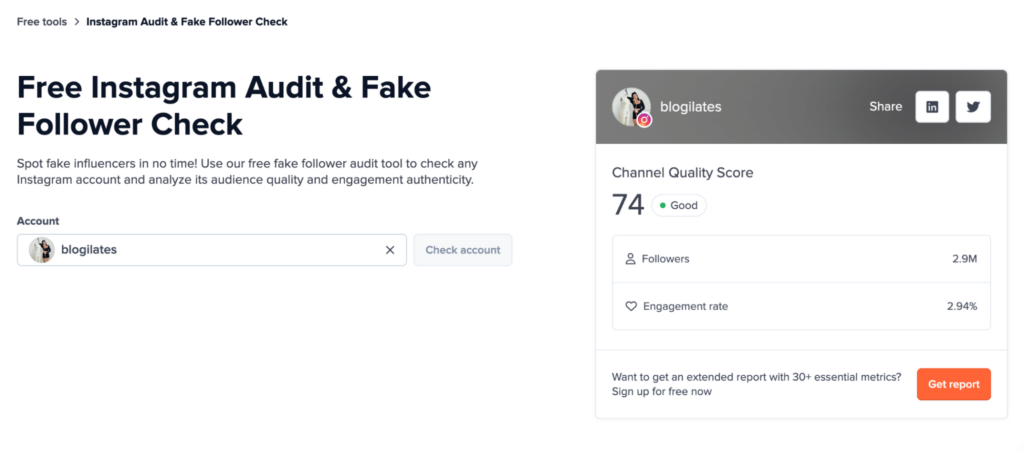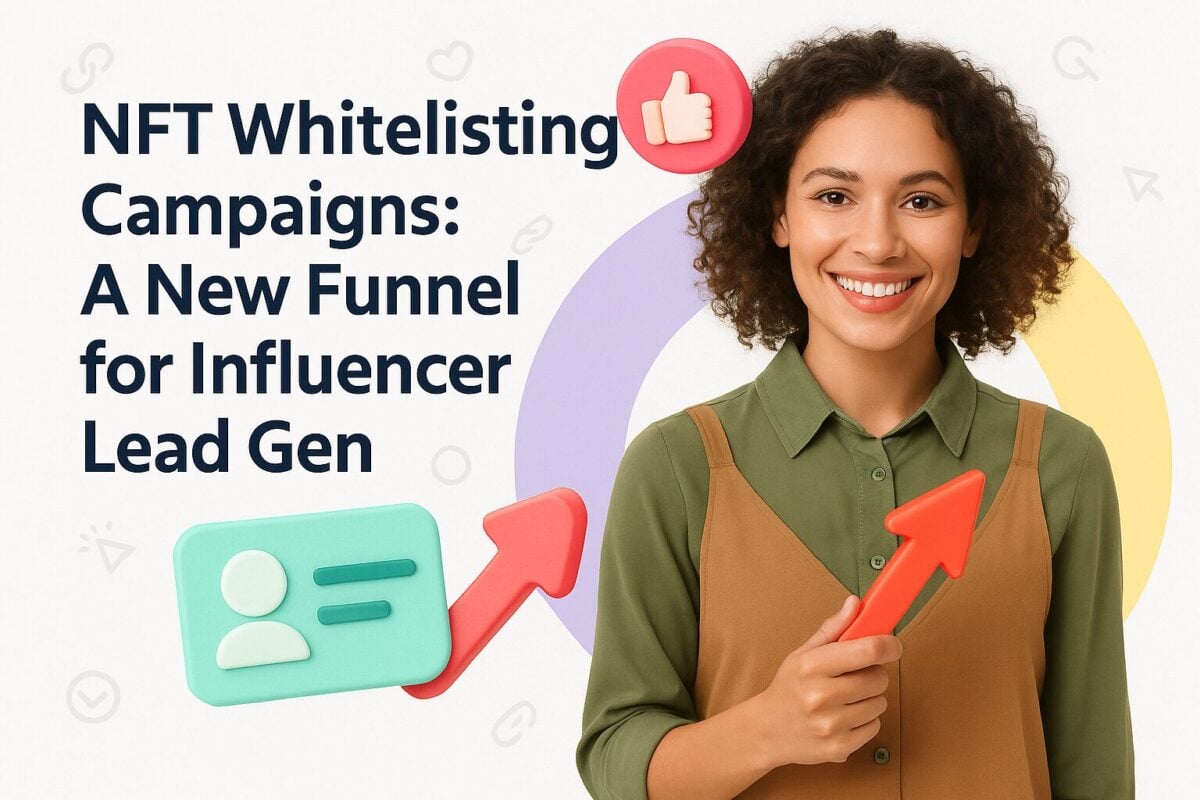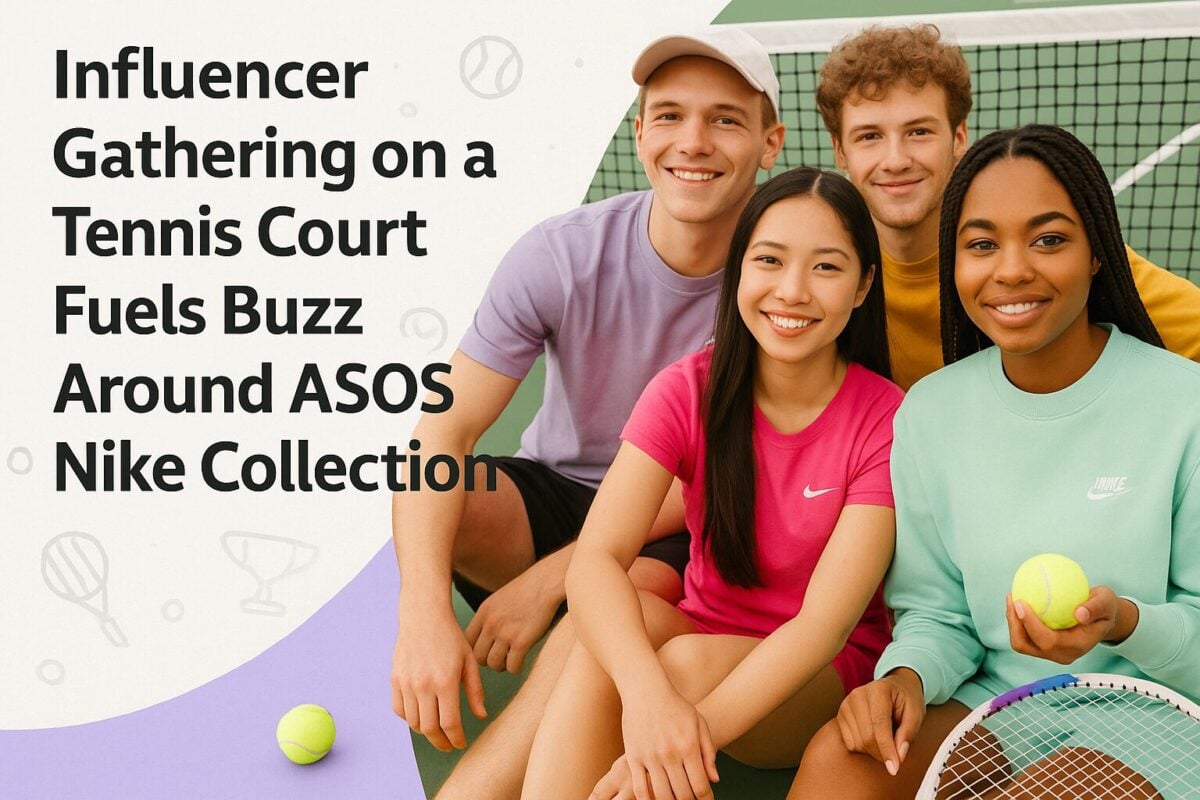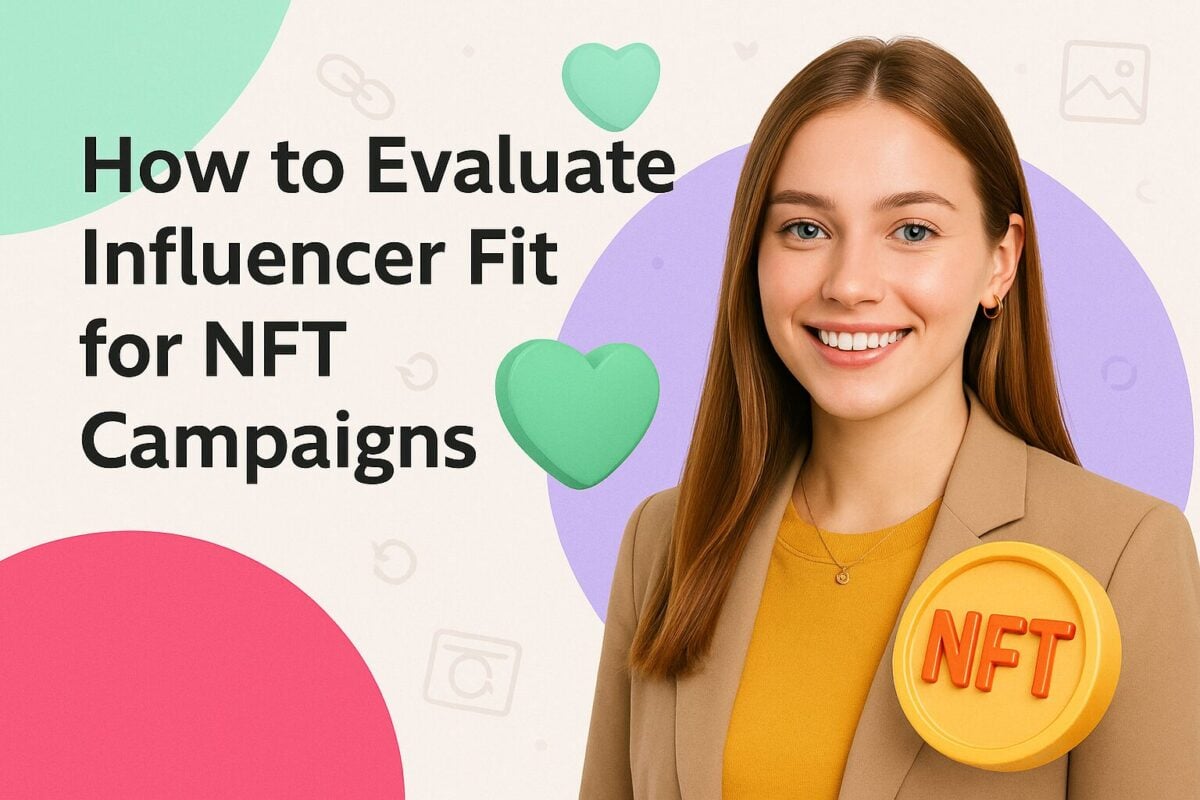Most of the brands use an influencer marketing platform to search for influencers and manage their campaigns. Be it a mega or micro-influencer, every brand has one or a number of influencers in its marketing strategy.
Due to the extensive use of influencer marketing platforms by brands, the influencer marketing industry is expected to grow to $24 billion in the near future.
However, these platforms can often come with a hefty price tag, making it difficult for small businesses and startups to afford them. But don't worry, there are plenty of free influencer marketing tools that are either fully free or offer a freemium model.
The latter allows you to use the basic features for free, but if you want extra perks, then you need to pay. Let's look at some of these tools to help you find and connect with influencers for your next campaign.
To make influencer discovery more accessible for all brands, Influencer Marketing Hub has collaborated with HypeAuditor to introduce their Rankings tool, which provides a free way to find TOP Influencers by Country and Category, helping brands of all sizes connect with the right influencers for their campaigns.
Top Authentic Influencers Ranking
1. Modash

Modash is an influencer marketing platform that provides a comprehensive suite of tools for discovering, analyzing, and monitoring influencers on Instagram, YouTube, and TikTok. With a database covering 250 million profiles, Modash is designed to help brands identify the right creators for their campaigns, evaluate their performance, and track the content they produce.
The tool has been around since 2018 and has worked with some of the biggest names in the tech industry, from Google to Surfshark and NordVPN. But tech isn’t the only industry in which Modash operates. Quite the contrary, Modashs’ client list also includes the likes of Victoria’s Secret, Wolt, Charles & Keith, Joom, Mont Blanc, Airbnb, and more.
Notable Features
When you use Modash, you start by utilizing its powerful discovery tool to find influencers who match your specific criteria. The search functionality allows you to filter influencers based on location, follower count, engagement rates, interests, and more. Additionally, Modash includes a look-alike feature that helps you find influencers similar to those you already work with, ensuring consistency in your marketing efforts.
Speaking on the discovery tool, Anna-Maria Klappenbach, Community & Brand Marketing Lead at Aumio, said
“After 5+ years in influencer marketing at 3 different brands, I can truly say that Modash’s discovery tool is the only one I ever want to use. I brought it with me when switching jobs. The data is accurate & easy to understand, which makes it easy to find the best influencers for our brand.”
Once you have identified potential influencers, Modash provides detailed analytics for each one. These analytics include engagement rates, audience demographics, and the authenticity of their followers. The tools’ analytics capabilities can be perfectly summed up with yet another testimonial from a satisfied client.
Another brilliant functionality is their fake follower detection algorithm. As one might imagine, Modash can detect fake followers by analyzing behavior patterns against typical social media activity. This ensures that the influencers you choose have genuine, engaged audiences.
Lastly, the platform automatically collects and tracks all content created by influencers about your brand, eliminating the need for manual monitoring. You can set specific keywords, hashtags, and mentions for influencers to use, and Modash will capture and report on this content. This feature not only saves time but also ensures that you stay compliant with advertising regulations by notifying you if influencers fail to disclose paid partnerships.
Limitations With Free Version
Modash only provides a 14-day free trial version for three of its four plans. That might be enough to set up your first influencer marketing campaign, but not nearly enough to ensure success in the long run.
Paid plans start with “Essential” at $99/month (paid yearly) or $120/month. The Performance and Advanced plans allow you to add more team members, monitor more creator posts, send more emails, and vet more influencer profiles.

Key Features: Campaign Management, Influencer Discovery, Influencer Analytics, Influencer Campaign Monitoring, Influencer Management,
2. Kitly Business

Kitly Business is a social publishing tool that provides social media intelligence to help you maximize your return on investment (ROI) before you procure social ad space from online publishers or influencers.
The highlighting feature of this tool is its Live Account Performance widget, which shows you an influencer’s engagement metrics in real time. You can see their number of followers, Reels reach, grid reach, and story reach to decide if they’re fit for your influencer marketing campaign.
The widget also shows you the median Reels reach for each influencer. Since Reels get the highest engagement and do 2x better than other post types, it’s understandable why you’d want to focus on Reels when collaborating with influencers.
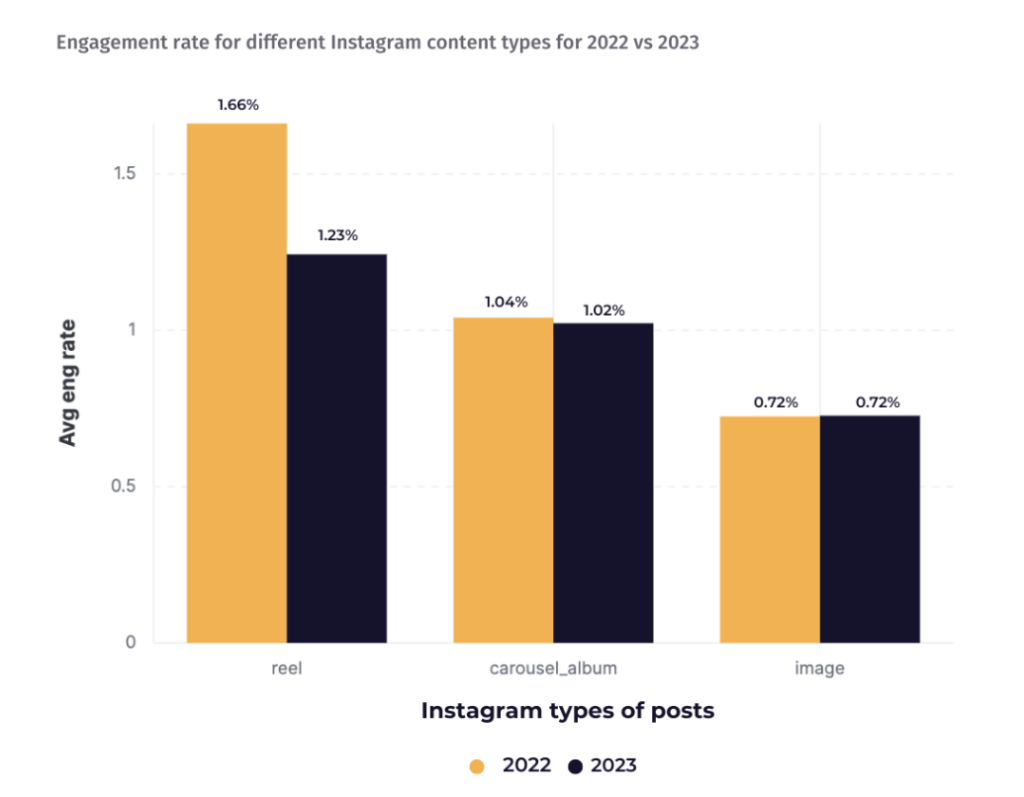
Engagement rate for Instagram content
Kitly Business gives you access to over 300 million creators from all over the world. So, you can run both local and international influencer campaigns.
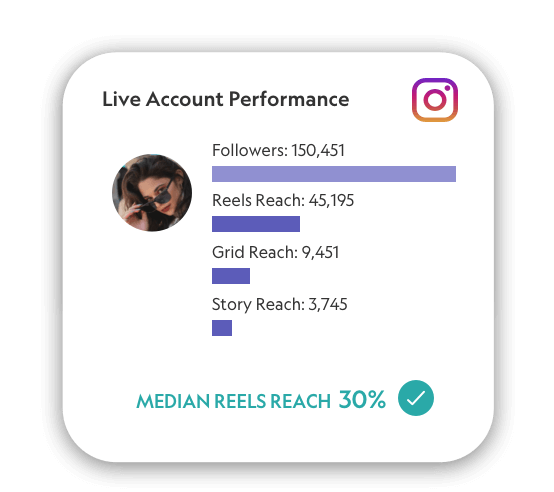
Kitly Business influencer insights
After influencer selection, you can manage all your creators in a customizable Influencer Relationship Management (IRM) dashboard. You can also use the tool’s analytics to get a detailed overview of your campaign performance.

Kitly Business analytics
The content creators make for your brand can also be stored within the platform.
Caitlin Sullivan, the talent director at One Management, discusses how this feature helped her brand by saying that
”The platform has streamlined the way we run campaigns, reports are set up at the start and given to the client, that way they can access the link at any point throughout the campaign for the most up to date analytics.”
Notable Features
Unlike some other platforms that use third-party data for their analytics, Kitly Business uses the APIs of its social media partners to provide first-party data to you.
The main difference between third-party and first-party data is that first-party data comes directly from the source (social media platform), giving you more accurate information. On the other hand, third-party data is obtained through an intermediary and may not be as reliable.
Kitly Business currently only provides information for Instagram, Facebook, TikTok, and YouTube. If you plan to run influencer campaigns on other platforms, you may need to use a separate analytics tool.
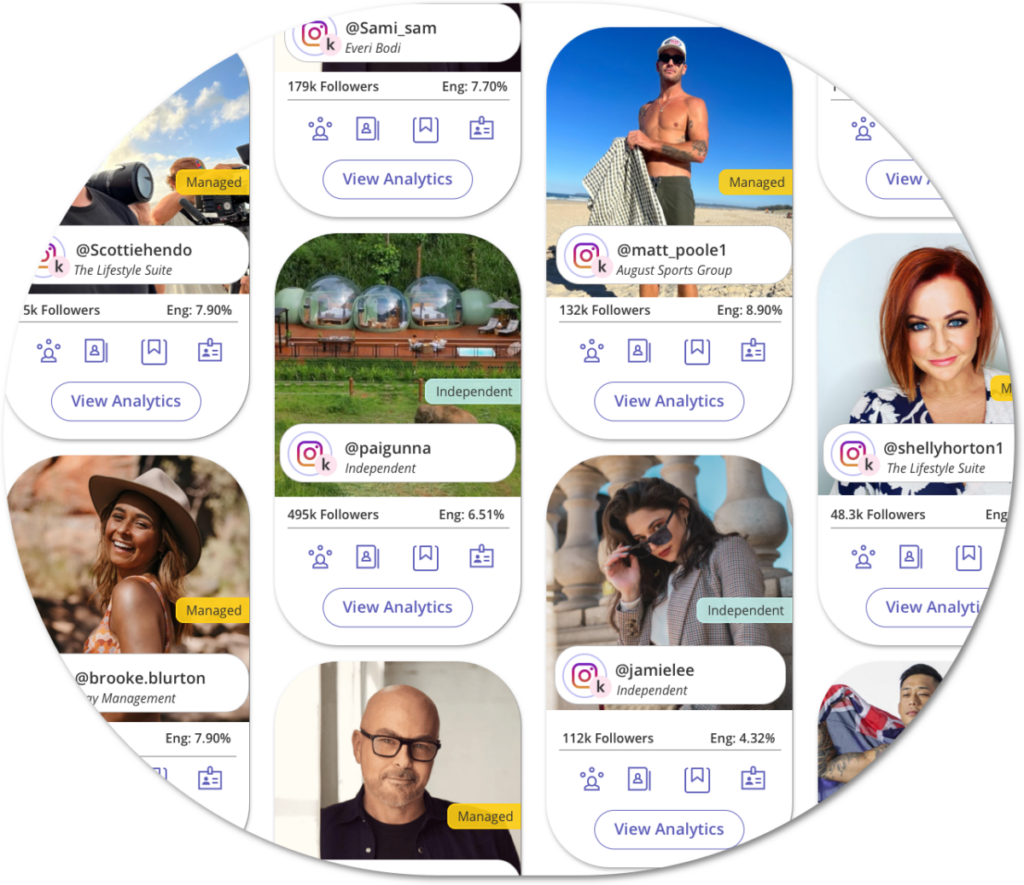
Kitly Business influencer data
The platform offers a Live Media Kit builder that you can use to create professional-looking media kits for your campaigns. It also gives dynamic reports for your campaigns that can be shared with clients or team members.
Plus, the Automatic Post Approval Request (APAR) feature allows you to set up guidelines and rules for influencers to follow when creating content for your brand.
As for campaign management, the platform facilitates you in running ambassador programs. You can track your organic and paid partnerships in one place.

Kitly Business clients
Besides dynamic reports, you also get predictive analytics. They help you understand the potential reach and engagement of your campaigns before they go live.
Limitations With Free Version
Kitly Business has moved from its freemium model to a completely paid subscription service. The free version is no longer available, but it offers a 7-day trial for new users to test out the platform before committing to a paid plan.
Subscription plans start from $99 a month. The price increases with the number of social media platforms and features you want to include in your subscription.

Key Features: Search/Discovery, Automated Recruiting, Team Collaboration Tools, Content Review, Content Library, Campaign Management, Campaign Reporting, Influencer Analysis, Audience Analysis, White Label Reporting,
Channels: Instagram, Facebook, Youtube and Tiktok.
3. HypeAuditor

HypeAuditor is an all-in-one influencer marketing platform that allows you to manage the whole lifecycle of your campaign in the same place.
While many other free influencer marketing tools only assist in influencer discovery, HypeAuditor also provides features for media plan creation, campaign management, influencer analytics, competitor analysis, and market landscape analysis.
The platform is suitable for running influencer campaigns on Instagram, Twitch, TikTok, X, and YouTube. It gives you access to more than 137.4 million influencers and uses 35+ metrics to vet creators.

HypeAuditor influencer metrics analysis example
HypeAuditor also uses a best-in-class AI fraud detection system to ensure that the influencers in their database are legitimate and have real engagement.
The feature reduces the risk of partnering with fake or inactive accounts, which can harm your brand’s reputation and waste your marketing budget.
Brands like Guess, Marriott, Universal Studios, LVMH, and Dior use HypeAuditor to run their influencer campaigns successfully. So, you can expect quality results from the platform.
Notable Features
To start, the influencer discovery feature makes it ultra-easy to find the right influencer for your campaign. HypeAuditor also has a ”Look-alike” feature, which allows you to find influencers similar to the ones you already work with or deem fit for your use case.
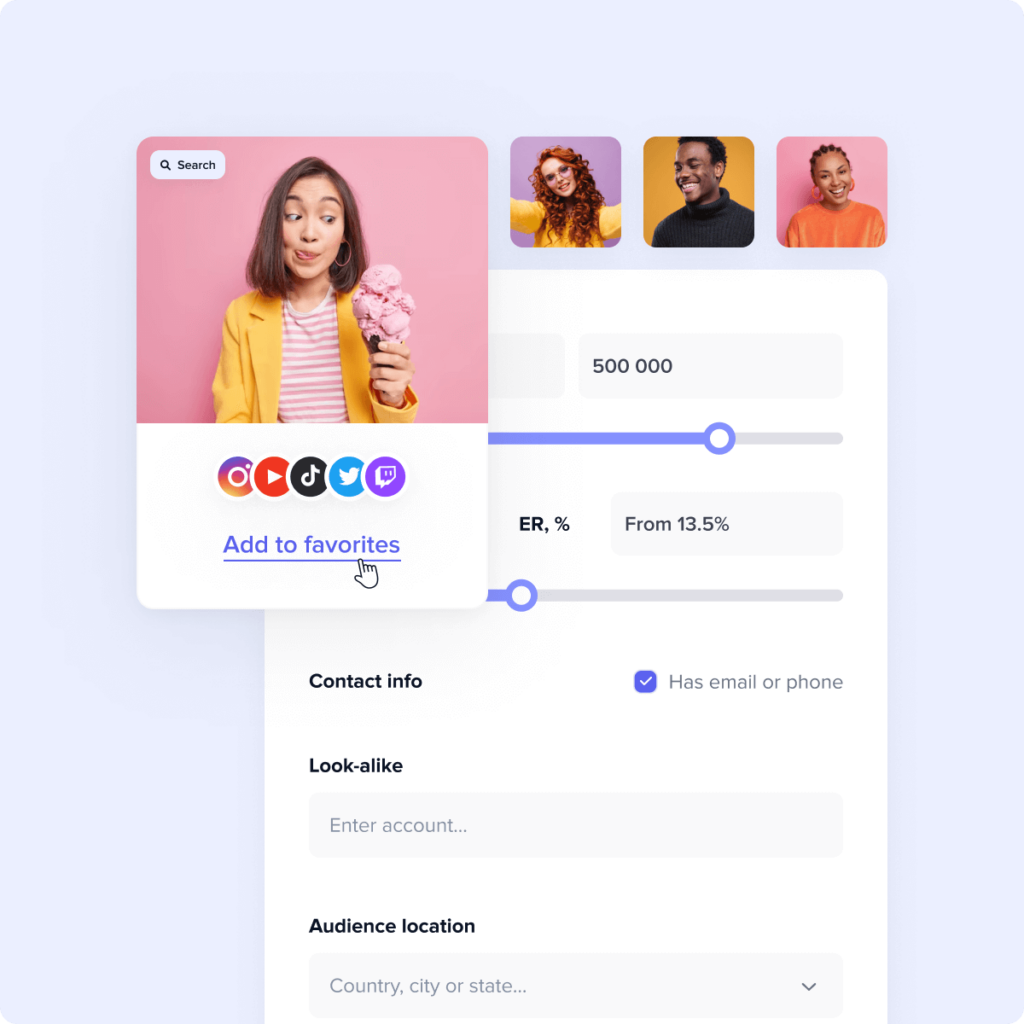
HypeAuditor influencer search
If you want to scour influencers by the brands they have mentioned in their content, you can use the “Brands Mentioned” filter option.
It shows you the brands influencers have mentioned in their post captions in the past 180 days.
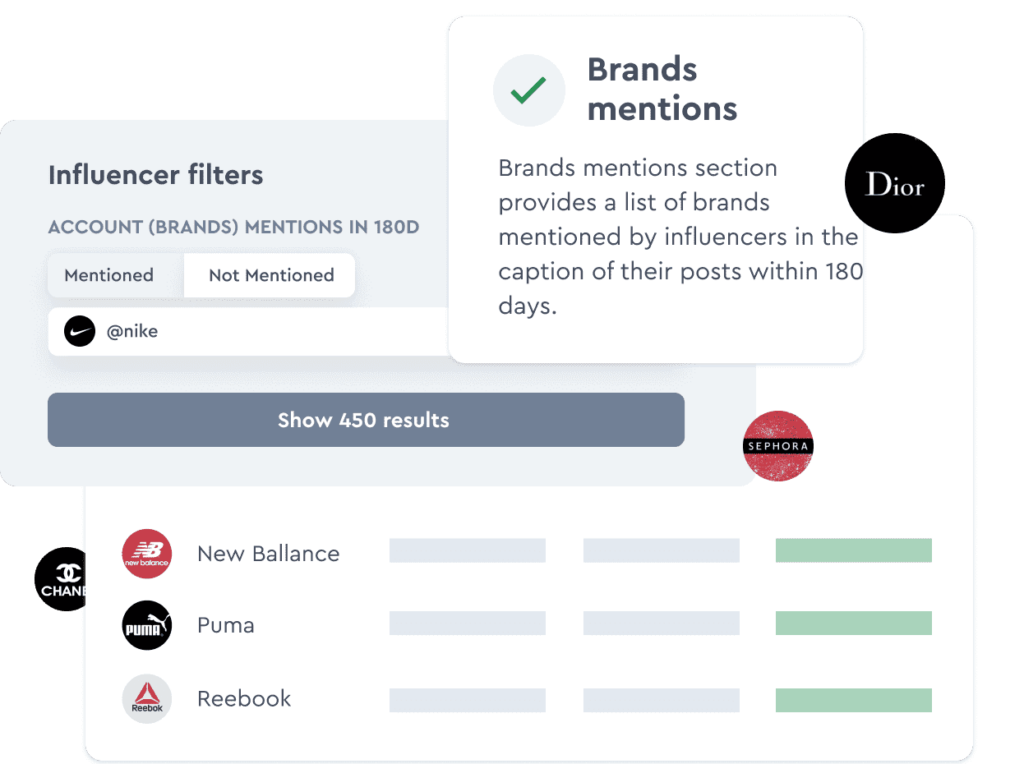
HypeAuditor brand mentions
Similarly, you can discover influencers by their audience’s ethnicity, interests, gender, age, and location.
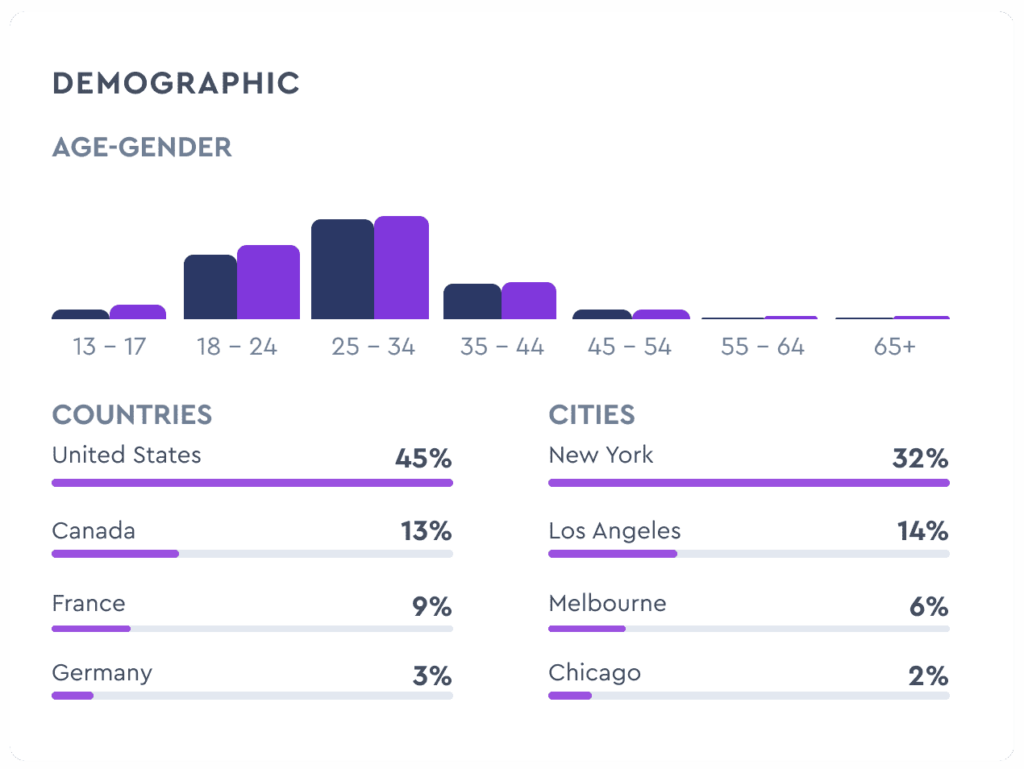
Audience demographics in HypeAuditor
The platform also lets you use hashtags as keywords to find prominent voices or thought leaders in a certain space. You can find rising stars or micro-influencers with this approach.
To ensure you work with legit influencers, HypeAuditor shows you an Audience Score. The higher the score, the better.
It also analyzes the audience type to show how much of the influencer’s following is real and what percentage comes off as suspicious.

HypeAuditor audience quality score
The platform’s analytics features allow you to measure the influencers’ reach, impressions, and other metrics across a series of social media platforms. You can also analyze YouTube channels to get channel performance and audience demographics metrics.

YouTube engagement metrics
Similarly, on TikTok, the tool shows you an Account Quality Score and a video performance indicator to base your decisions on. Again, TikTok’s audience demographics and location insights are available on HypeAuditor.
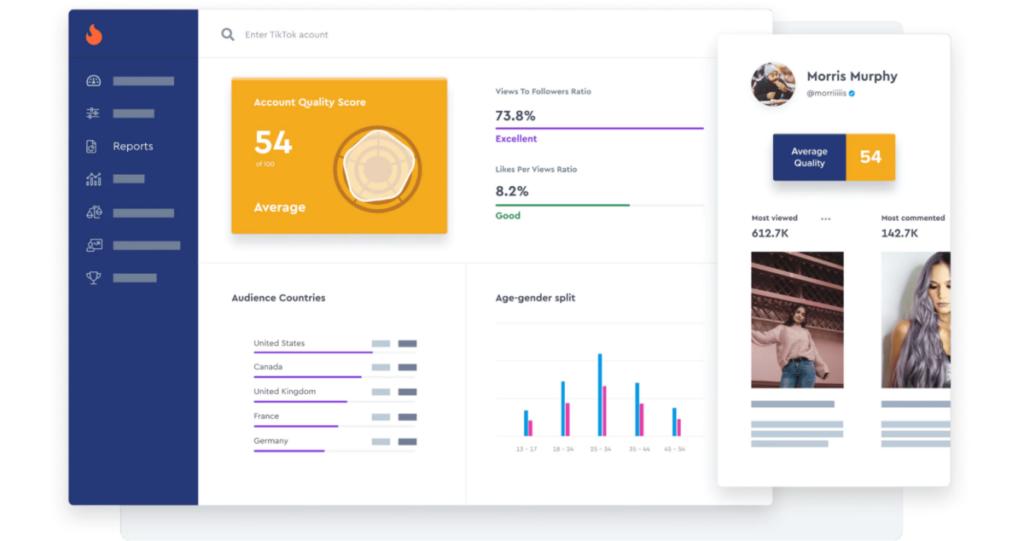
TikTok account analysis
Reaching out to influencers, even in bulk, is also a breeze with HypeAuditor. Simply send a contract in, and you’re ready to go.
Influencers can submit their drafts and get approvals within the platform, too. You can then go ahead and schedule the posts for the relevant social media platform.
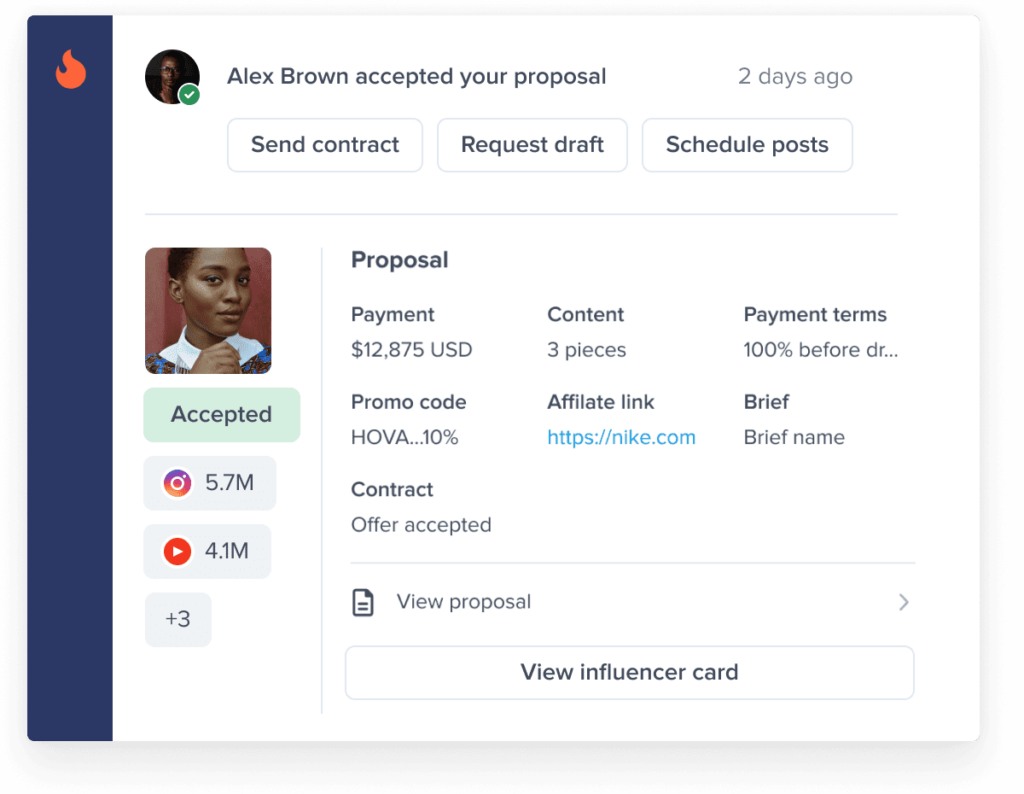
Influencer campaign management
If you need a better view of what’s working in your industry, you can use the Market Landscape feature to gauge how other brands’ influencer marketing campaigns are doing. The market research tool shows you information from different niches and countries, too.

HypeAuditor market research
HypeAuditor also helps you find current trends. It’s easy to find what’s hot in the market and how other brands are capitalizing on it.
Use the platform to keep an eye on your competitors and get the lists of influencers they are working with.
Limitations With Free Version
HypeAuditor has a bunch of free influencer marketing tools, such as an Instagram Engagement Calculator, an Instagram Audit tool, a TikTok Account Quality Checker, Active Brand Campaigns tool, and more.

HypeAuditor free influencer marketing tools
However, the platform itself is not free. It offers a free demo for its campaign manager and influencer search features. However, the influencer search only gives you access to three influencers per search.
If you’re satisfied with the demo, you can reach out to sales to get the pricing for your paid plan.

Key Features: Search/Discovery, Campaign Reporting, Influencer Analysis, Audience Analysis, White Label Reporting, Fake Follower/Fraud Detection,
Channels: Instagram, YouTube, TikTok, Twitch, Twitter
4. Shopify Collabs (Formerly Dovetale)

Shopify is among the leading e-commerce platforms out there. But it’s not merely that. Its integrations make it more feature-rich, with offerings like influencer outreach, customer sentiment analysis, and more.
Shopify Collabs, previously known as Dovetale, is one particular integration that helps brands make the most of influencer marketing on Shopify. It’s an all-in-one solution that helps you find influencers and run affiliate campaigns without leaving the Shopify Admin panel.

Shopify Collabs
Shopify Collabs is free to install for merchants who already sell on the platform. Many of the Shopify brands like Moonboon, Duradry, and Kyte, use this integration to run their influencer marketing campaigns.
Notable Features
Like most other tools, you can start by recruiting creators for your campaign. If you already know creators you want to work with, you can invite them through the platform.
Shopify Collabs takes away the hassle of creating spreadsheets. You can let influencers choose the products they want to promote from your catalog. With a simple click, the samples will be then sent to the influencers.
If you want to offer discount codes to influencers, you can do that through Collabs, too. The platform lets you create unique affiliate links for each influencer that they can share with their audience.
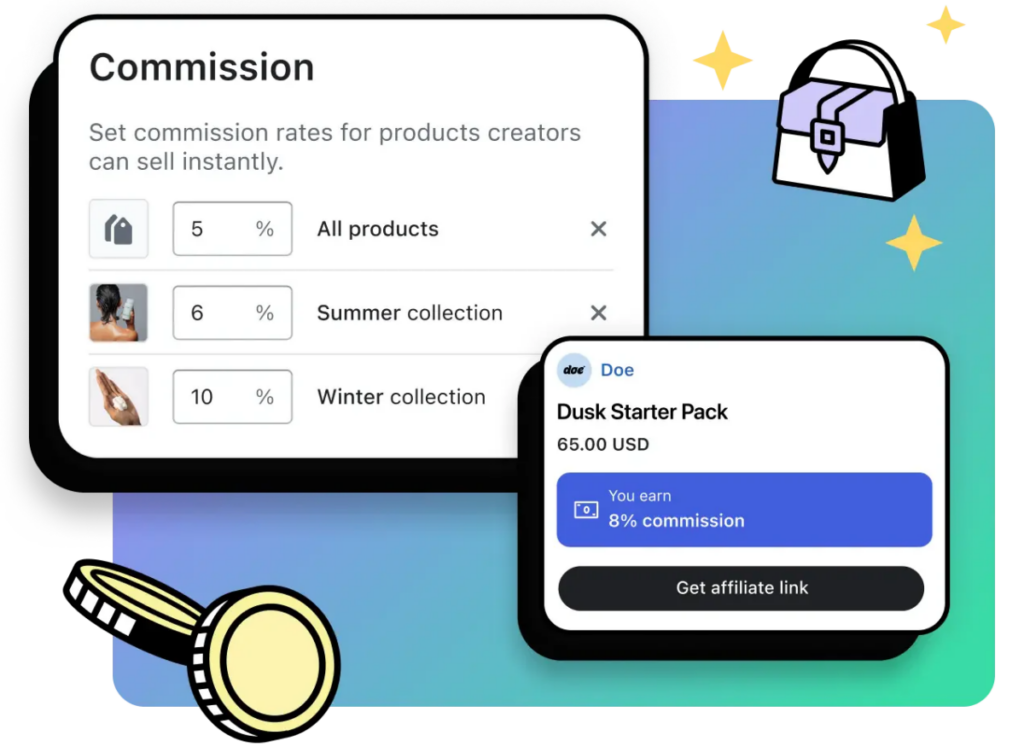
Shopify Collabs affiliate commissions
You can also track the performance of each link and see which influencers are driving the most sales.

Shopify Collabs analytics
Since the platform integrates the Shopify Billing system, you don’t need a third-party tool for payments. Save time by setting up automatic commissions for your influencers directly through Shopify.
Another highlighting feature of the platform is Shopify Flow. It’s an e-commerce automation platform where you can create pipelines that work on autopilot.
So, you can create workflows that automatically send out email sequences to influencers, update product information, and send out payments.
That’s how immi’s Ram Fam drove $200k in sales through the platform. The ramen brand worked with 432 ambassadors with Collabs, a number that would have been a nightmare to manage manually.

Immi’s Collabs success timeline
With Collabs, the brand could send hundreds of gifts to its creator community. These creators then shared their love for immi’s ramen with their followers, driving a significant increase in sales.
Simal Adenwala, the partnership manager at immi, said,
“We love using Shopify Collabs because it’s simple and easy to use. The Collabs team is easy to work with, always open to feedback, and the platform saves us so much time with really easy to use features for affiliate tracking, gifting and commission tracking.”
Similarly, Duradry, a deodorant brand, also saw massive success with Collabs. The founder of the brand said,
“Shopify Collabs has not only simplified the way we work with creators and advocates of our brands, but it’s also made it incredibly simple to manage our affiliate and gifting workflows.”

Duradry Collabs success timeline
The company was able to reduce its customer acquisition cost by 29% with Collabs. Plus, Duradry generated $50,000 in sales with its influencer and affiliate campaigns.
Limitations With Free Version
The only limitation with Shopify Collabs is that you need to have a Shopify store to use the platform. If you’re already selling on the platform and want to take your influencer reach to the next level, Collabs would be a great addition to your marketing arsenal.
5. Storyclash

Storyclash is an AI-powered influencer search platform that helps you find authentic creators that align with your brand’s vision and goals. The AI visual influencer search lets you find influencers with a quick search.

AI influencer search on Storyclash
For example, you can search for something like ”woman with curly hair” or ”man wearing glasses” and Storyclash will provide you with a list of influencers that fit those descriptions.
Zeynep Doygun, the marketing lead at Trendyol, says,
”Using the Brand Collaborations Timeline or the AI Search, we’ve found hundreds of super-fit influencers for Trendyol and implemented campaigns. We’re all very impressed with the data in the tool and its capabilities.”
Influencer search on Storyclash is not limited to facial and visual descriptions alone. You can also vet influencers by their followers, engagement rate, and other metrics.

Storyclash influencer search
Notable Features
One of the coolest features of Storyclash is that it lets you replicate the strategies of influencer-focused brands. Suppose you have a competitor that is doing exceptionally well with influencer marketing.
You can use Storyclash to find which influencers they collaborate with. The tool also shows you statistics related to these collaborations and the posts these creators make for those brands.

Storyclash competitor campaign analysis
Many of Storyclash’s users find this feature pretty helpful. Delaram Khaledi-Krüger, the senior marketing manager at Löwenanteil, reports,
”The tool allows us to find our partners with best brand-fit much easier, track down competitors in creators’ stories and make the whole workflow more efficient.”
After collaborating with suitable influencers, you can manage your campaigns with them within Storyclash. The platform lets you plan your creator pipelines, track the content they create, analyze costs, and measure key performance indicators (KPIs) in the same dashboard.
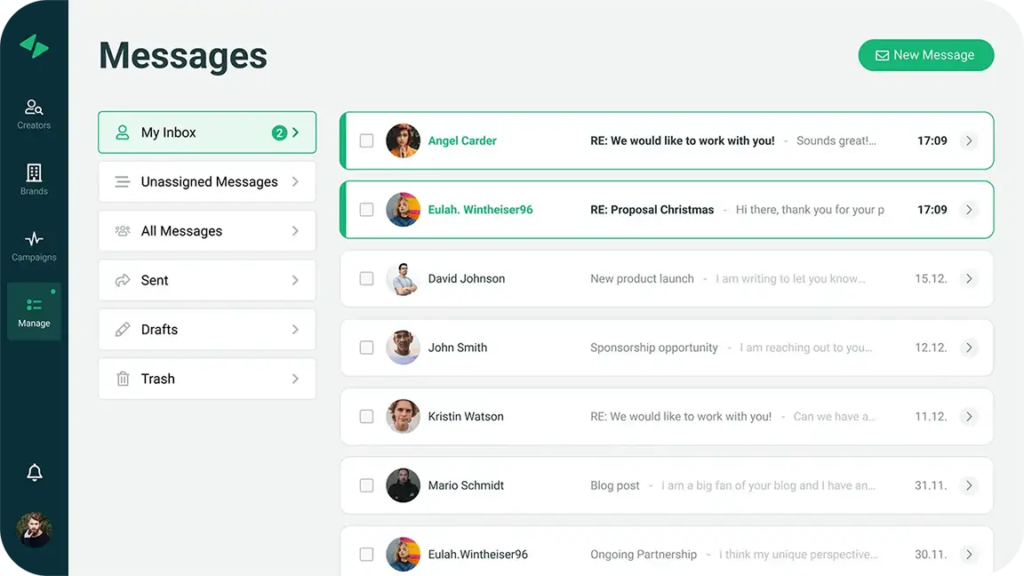
Storyclash campaign management
Storyclash also facilitates cross-platform collaboration analytics. It also integrates with Shopify to provide e-commerce brands with a holistic view of their influencer marketing performance.
With Storyclash’s TikTok Influencer Search tool, you can find influencers by language, gender, follower size, engagement, location, and similar metrics.
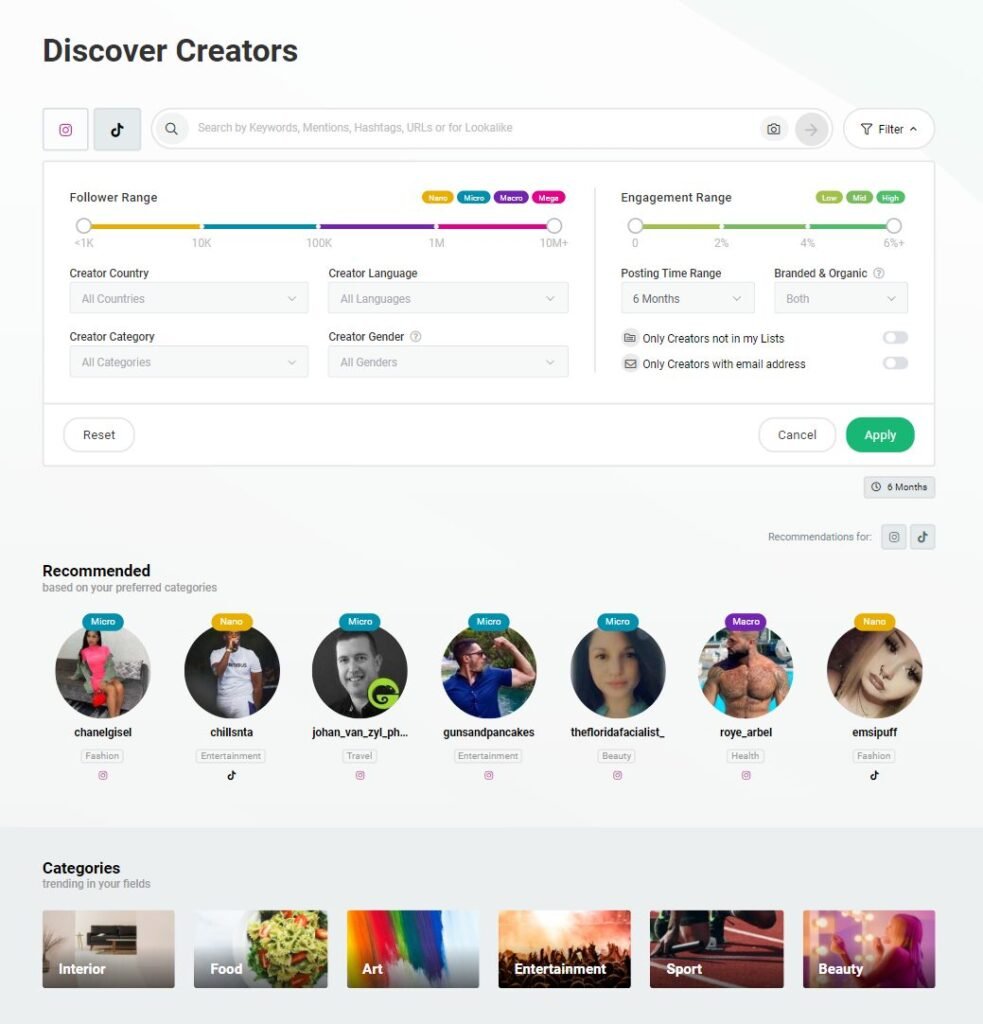
Storyclash influencer search
The ”hidden gems” feature lets you discover fast-growing influencers in your industry that you might not have known about otherwise. If you’ve had exceptional success with an influencer, use the lookalike feature to find similar creators.
The TikTok Analytics dashboard shows you the performance of every influencer and post. Besides the engagement rate, the tool also shows you likes, comments, and shares.

TikTok analytics in Storyclash
If you need detailed data, audience data demographics and profile analytics are also available. It is due to these features that Martin Kalasho, the influencer marketing manager at his brand, says,
”You are 10 steps behind in your influencer strategy if you have not seen the power of Storyclash.”
Similarly, the Instagram Search Engine shows you trending posts and stories from influencers on the platform. The reports and analytics can be filtered by keywords.

Storyclash Instagram search engine
You can further share them with your team or clients for local and international influencers.
The built-in CRM in this platform keeps the relationship between you and your influencers tight-knit at all stages of the marketing journey. Whether you want to send personalized messages to new influencers to monitor ongoing collaborations, it’s all possible in the creator management dashboard.
Limitations With Free Version
The free version of Storyclash only lets you search for four influencers. If you use the Visual Influencer Discovery tool, each search will only show you 18 posts.
Also, the search option is only available for Instagram. To search for influencers on TikTok and other platforms, you will need to upgrade to the paid version.
The paid versions come with a host of additional features like AI-powered search, brand collaboration insights, audience demographic reports, budgeting, ROI tracking, and email messaging integrations.

Key Features: Search/Discovery, Influencer Relationship Management, Team Collaboration Tools, Content Library, Campaign Reporting, Product/Gifting Tools, Fake Follower/Fraud Detection, Social Listening, Competitor Research,
Channels: Instagram, Tiktok, Youtube, Facebook & Twitter
6. Bazaarvoice (Formerly Affable.ai)

Now an offering of the Bazaarvoice solution, Affable.ai is a free DIY influencer marketing platform that enables brands to discover and collaborate with authentic influencers, amplify their brand message, and measure the impact of their influencer partnerships.
The platform is geared mainly towards agencies that want to handle all their clients’ influencer needs in one platform. Addable.ai offers an expert-led demo and on-demand trial to help agencies explore the platform and its features.
Notable Features
The influencer discovery feature of this platform is the same as any other platform. You can search for influencers based on their followers and audience interests.
All influencer profiles display their engagement rate, location, and follower count. There are more than 20 advanced filters to help you narrow down your search and find the perfect influencer for your brand.
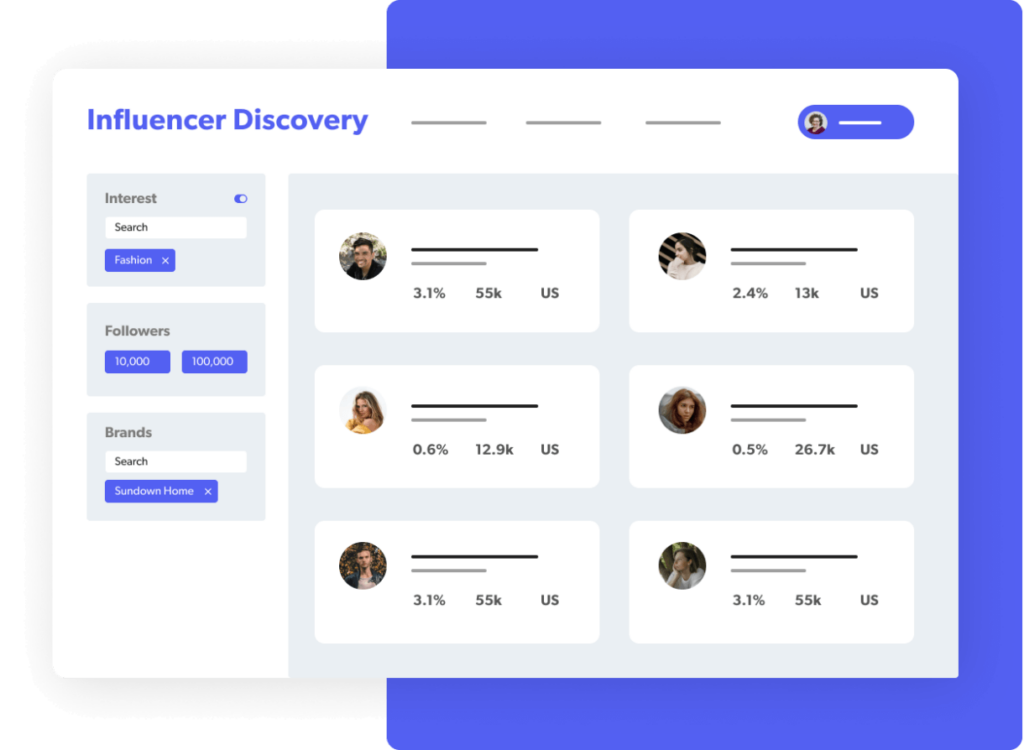
Bazaarvoice creator search
You can also use the platform’s GenAI to simplify your influencer search. For example, the AI gives you lookalike recommendations based on your existing influencer partnerships.
Or, you may use conversational chat to find influencers that fit your target demographic. Simply tell the chatbot what you’re looking for, and it will generate a list of potential influencers.
Alternatively, you can “show” the platform your mood board. It would then extract the visual elements of your mood board and recommend influencers whose profiles align with the aesthetic.
Following influencer selection, you can further manage your campaigns on the same platform. Be it one or 1,000+ influencers; the platform is robust enough to handle all your collaboration and campaigns.

Bazaarvoice influencer management
The reporting capabilities of Bazaarvoice are so impressive that Celisse Ng, the marketing manager at L’Occitane, says,
“We would highly recommend affable.ai for its insights on creators and tracking and reporting capabilities. The process is a lot easier and more convenient in getting details such as engagement rate and reach of creators, which helps us curate our content more efficiently.”
To make your influencer campaigns even more cohesive, the platform integrates with your e-commerce and communications platforms. That way, all your teams can stay on the same page, and your influencer marketing strategy can be seamlessly integrated into your overall marketing plan.

Bazaarvoice integrations
You can also manage influencer gifting from within this tool. The product seeding feature allows you to send products directly to influencers, eliminating the manual hassle of managing each creator individually.

Bazaarvoice influencer gifting
Besides recruitment and tracking, Bazaarvoice also streamlines influencer payments. Since the analytics and commission tracking are all done on the platform, you can easily disburse payments to your influencers and track all the transactions in one place.
The influencer management dashboard also has a Trends tab, where you can find new and upcoming trends. So you can always be a step ahead of your competition.
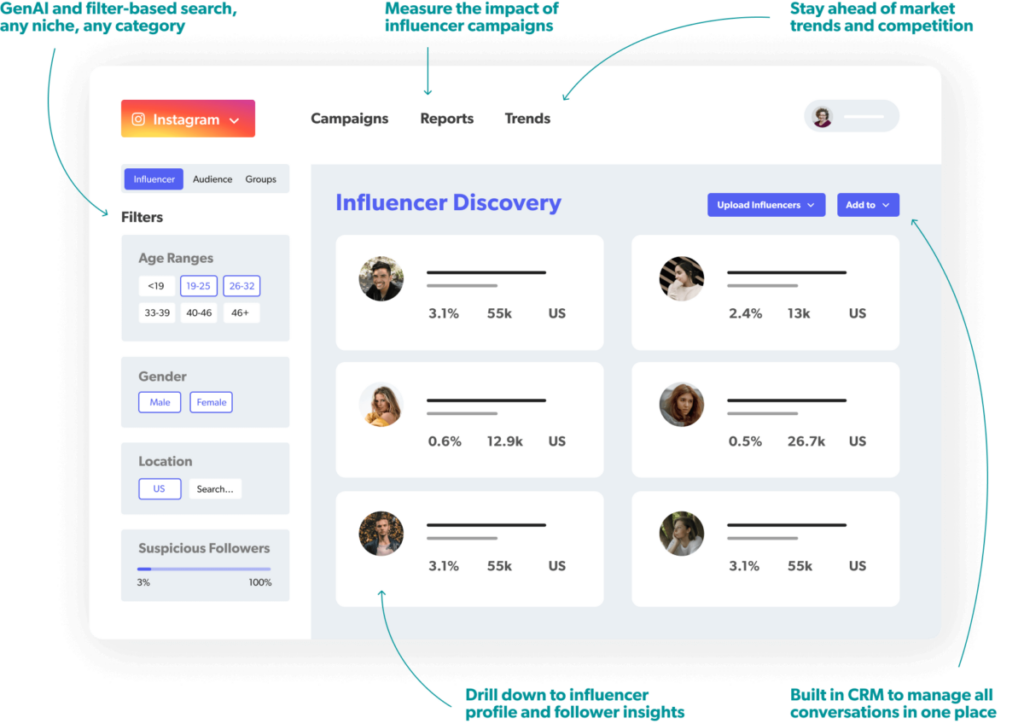
Bazaarvoice dashboard
Bazaarvoice also makes it easy to get brand ambassadors and advocates on board. You can respond to customer queries at scale and address negative reviews with ease.

Webroot customer responses
Webroot is one example of a brand that improved its brand equity by responding to 70% of the reviews it received on third-party sites. Anna Kim, the senior advocate programs manager at the company, said,
“We think a negative review can be a positive review if there’s a response. Anyone who sees our responses knows we take them seriously and take action appropriately, which drives consumer confidence in our products and in Webroot as a whole.”
L’Occitane, a beauty brand, also used Bazaarvoice to run a Christmas marketing campaign with 53 micro-influencers. The platform helped the brand automate influencer monitoring and get accurate measurements of audience interactions with the campaign.

L’Occitane influencer search
L’Occitane’s use of Bazaarvoice helped the brand generate an earned media value of $23,000. The company’s Christmas shopping season sales also saw a positive impact from the influencer campaign.
In addition to its impressive solutions, Bazaarvoice also has a Resource center where it publishes reports and blogs for brands and agencies. The company also hosts an annual summit that brings together top industry experts and thought leaders to discuss the latest trends and strategies in influencer marketing.
Limitations With Free Version
Since becoming Bazaarvoice, Affable.ai is a paid platform. The pricing depends on the features you add to your plan.
7. Influence.co

Influence.co takes a vastly different approach when compared to most influencer platforms. Although Influence.co offers all the usual influencer marketplace services, it also acts very much like a social media platform. This helps brands sustain the types of authentic and long-term relationships that are intrinsic in influencer marketing. In fact, Influence.co now has a social network and marketplace with over 300,000 members, 170,000 of whom are influencers, over 75,000 businesses, and 30,000+ other people.
The social aspect of Influence.co doesn’t take the place of discovery and activation; it complements it. However, it succeeds in elevating the platform to something else. Brands are likely to build their best relationships with influencers whose posts they see in their feed.
Pros
- Lets you build influencer lists
- Provides influencer demographics insights
- Lets you manage conversations within the platform
- Helps influencers find you
- Offers a free Chrome browser to analyze influencers
Cons
- Influencer data source is mostly limited to Instagram
Platform Compatibility
- YouTube
- Patreon
- Snapchat
- Tiktok
- Amazon
Search and Filter Capabilities
- Search by category, collaborations, username
- Filter by engagement rate, age, gender, networks, rate, location, follower count
Limitations with the Free Version
With the basic free account, you can build your own profile and access the platform’s community. However, you only get 50 results for each search while the paid plan gives you unlimited results. Plus, you only get basic demographic information for influencers in your search results whereas the paid version lets you unlock advanced demographics.
Similarly, you can save your influencers in up to three lists with the free version whereas you get unlimited influencer lists with the paid plan. Another major limitation is that you only get 25 conversations per month with the free version. The Personal Pro plan gives you 150 conversions per month while the Pro plan gives you 2,000 conversations per month.

Key Features: Search/Discovery, Automated Recruiting, Influencer Relationship Management, Influencer Marketplace, Content Library, Campaign Management, Campaign Reporting, Influencer Analysis, Audience Analysis,
Channels: Instagram, YouTube, Facebook, Pinterest, Twitter, Patreon, Snapchat, Tiktok, Amazon
8. Discover.ly

Discover.ly is a Chrome plugin that helps you with your networking. You can use it to see your email recipients, LinkedIn, and Facebook connections’ social accounts and updates in a sidebar. This means, for instance, that you can see mutual Facebook friends for somebody you connect with on LinkedIn.
You can also see your connections’ social media accounts on a wide range of other social media channels and platforms.
One use for Discover.ly is to see if any of your existing contacts have connections with influencers in your niche. If you find any connections, you could then leverage your contacts to introduce you the influencers.
Pros
- Provides access to complete social contact info
Cons
- Doesn’t provide profile stats or analytics
- Doesn’t support keyword-based searches
- Not a typical influencer search tool
Platform Compatibility
- Gmail
Search and Filter Capabilities
- No search or filter capabilities
Limitations with the Free Version
Discover.ly is a free plugin and it has no paid version against which to compare its limitations.
9. Alltop

If you are looking for influential blogs, a Google search can be something of a hit or miss affair. It records all different types of websites in its results, and blogs are mixed in with everything else, from sales pages to forums. Alltop can help you here as it simply aggregates blog posts.
It is curated by people, not by an algorithm, who search for the top blog posts each day in particular niches.
You can use it to find the top posts in your niche, which should help give you an idea of the most influential blogs on your topic.
Pros
- Ideal for discovering reputable bloggers and journalists
Cons
- Requires a lot of manual work
- Doesn’t support searches for social media profiles
- Doesn’t provide stats and analytics
- Not a typical influencer search tool
Platform Compatibility
- n/a
Search and Filter Capabilities
- Search by category
Limitations with the Free Version
Alltop is free to use and there is no paid version against which to compare its limitations.
10. Podbay.fm

When we talk about influencer marketing we rarely think about podcasting. But podcasting has grown dramatically over the last few years, and quite a few influencers now host their own regular podcast show.
The easiest way to listen to podcasts on iOS devices is via iTunes. On Android, Stitcher is a well-rated app for this purpose.
But, these apps are not so good at helping you find the most influential podcasters in your niche.
Podbay.fm is useful because it ranks podcasts within various genres. Search for the category that best fits your niche.
You may want to find a podcast that uses an interview format so you can request the host to add you to the relevant podcast’s interview list.
If it is not obvious from the description on Podbay.fm whether a particular podcast uses an interview format or not you can search for the podcast on iTunes or Stitcher. You can then check its format and suitability for your purposes.
Pros
- Helps you stay on top of upcoming influencers with the “Popular New Podcasts” tab
- Displays ranking across all genres
- Lets you build a list under “My Podcasts”
Cons
- Doesn’t support searches for social media profiles
- Requires a lot of manual work
- Not a typical influencer search tool
Platform Compatibility
- n/a
Search and Filter Capabilities
- Search by keyword and genre
Limitations with the Free Version
Podbay is free to use and there is no paid version against which to compare its limitations.
11. Crowdfire

Crowdfire is a freemium social media management platform that comes with powerful features for content search, analytics, and publishing. You can use the platform to discover popular content across the web in the topic of your choosing. This is a great way to discover influential content creators in relevant niches.
Pros
- Works great for all-in-one social media management
Cons
- Doesn’t support a regular influencer search
- Doesn’t provide influencer stats and analytics
- Requires a lot of manual work
- No option to directly connect with creators
- Not a typical influencer search tool
Platform Compatibility
Search and Filter Capabilities
- Search by topic
Limitations with the Free Version
The free version of Crowdfire can be linked to up to three accounts. It doesn’t let you track your Twitter and Facebook mentions to find influencers who are talking about your brand. This is a feature exclusive to the Premium and VIP plans.
12. Hunter.io

Hunter.io finds email addresses for you. You enter a domain name into their search engine and Hunter.io will do its best to find the email addresses attached to that domain.
Hunter.io can be particularly helpful for finding the email addresses of people who may be of value to your organization. For instance, as part of your influencer campaign, you may wish to ask for a guest blogging post on an influential blog in your niche. It can be difficult at times to find the correct email address when you need to approach them with your request. You can enter a person’s name company website into Hunter.io, and it will come up with a suggested email address.
If you think you have a valid email address to follow up but are unsure, you can enter the address into Hunter.io, and it will determine whether the email address is valid.
You can also use Hunter.io as a plug-in. In this case, when you go to a particular website you can click on the Hunter.io icon in your browser and it will find any valid email addresses attached to that domain.
Pros
- Lets you create email campaigns right within the platform
- Supports an unlimited number of team members
Cons
- Doesn’t support a regular influencer search
- Doesn’t provide influencer stats and analytics
- Not a typical influencer search tool
Platform Compatibility
- n/a
Search and Filter Capabilities
- n/a
Limitations with the Free Version
The free version of Hunter.io only lets you conduct 25 searches and verify 50 emails a month. Plus, it doesn’t come with capabilities such as domain search.
13. Similar Web

SimilarWeb can be particularly useful if you are trying to find out the demographics that relate particular bloggers. SimilarWeb provides extensive website, industry, and app analysis so you can unlock performance insights for an influencer’s blog. While you need a paid plan to use SimilarWeb on a frequent basis, they do offer a tool that lets you order a free report about any website or app. The free version provides results based on three months of web traffic data.
Obviously, you will want to use other tools to determine which potential influencers’ sites you wish to investigate first before you use up your free allocation of Similarweb research.
Pros
- Provides detailed breakdown of audience interests
- Generates a list of similar sites and competitors
Cons
- Only suitable for analyzing influencers with their own blog/domain
- Not a typical influencer search tool
Platform Compatibility
- n/a
Search and Filter Capabilities
- Search by domain
Limitations with the Free Version
The free tool provides you with a limited number of results for each report. Moreover, it doesn’t support Excel downloads, which means you need to manually record the data or register to download the PDF version.
What Are Influencer Marketing Tools?
Influencer marketing tools are essential software platforms that empower brands to discover, connect with, and manage influencer relationships and campaigns effectively.
These tools simplify tasks, streamline processes, and offer valuable insights to enhance the success of influencer marketing efforts. Key features of influencer marketing tools include:
- Influencer Discovery: Easily find the right influencers for your brand by filtering based on location, hashtags, interests, audience demographics, and engagement rates. For example, Modash enables users to search across multiple social platforms to identify influencers that meet specific criteria.
- Influencer Outreach: Streamline communication with potential influencers by sending pre-written email pitches and tracking online conversations about your brand. Kitly Business facilitates seamless outreach, enabling effective collaboration with partners.
- Campaign Management: Keep track of campaign progress, stay organized, and manage influencer relationships from onboarding to execution. HypeAuditor provides a comprehensive campaign management system to help brands oversee their influencer collaborations efficiently.
- Analytics and Reporting: Gain in-depth insights to track progress, analyze influencer success, measure ROI, and refine future campaigns. Shopify Collabs (formerly Dovetale) offers detailed analytics to help brands understand their campaign performance and optimize strategies.
- Free Influencer Marketing Tools: Take advantage of free tools like Storyclash, which allows brands to identify trending content and monitor influencer campaigns without any financial investment.
- Platform Compatibility: Leverage tools like Bazaarvoice (formerly Affable.ai) that offer extensive platform compatibility, enabling brands to manage influencer campaigns across multiple social media networks seamlessly.
- Search and Filter Capabilities: Utilize Influence.co's robust search and filter features to pinpoint influencers based on specific niches, engagement metrics, and audience demographics.
What to Do When You Find Potential Influencers for Your Brand?
Influencer marketing is a great way to connect with a target audience and drive engagement. It is also a great way to build a relationship of trust and collaboration.
Once you use these free tools to find influencers who are relevant to your niche, here are four tips to help you get started:
1. Connect with them on their social media platforms like Facebook and Instagram.
Social media is a great way to connect with potential influencers and get to know them better. By following them and engaging with their content, you can start to build rapport and develop a relationship.
Take the time to get to know them and build rapport before asking for anything. Always be respectful of their time and space, and do not bombard them with messages. If you show that you are sincere and genuine, the likelier they will work with you in the future.
2. Verify their influencer credentials.
As influencer marketing continues to grow in popularity, more and more businesses are looking to jump on the bandwagon. However, influencer marketing is not without its challenges, and many businesses make avoidable mistakes that can jeopardize their campaigns.
One of the most common mistakes is failing to verify an influencer's credentials. With so many influencers out there, it can be tempting to work with anyone who seems popular. However, it's important to make sure that an influencer brings relevant value to your brand and that their audience demographics are relevant to your products or services. Otherwise, you could end up wasting time and money on a campaign that doesn't generate any results.
Luckily, HypeAuditor can help you access data on an influencer's audience demographics, engagement rates, and authenticity scores. This tool helps you identify genuine influencers with real followers and meaningful engagement, reducing the risk of partnering with those who might have inflated metrics or a misaligned audience.
3. Create content strategy goals for your influencer campaign.
Before you start reaching out to influencers, it's important to have a content strategy in place. What are your goals for the campaign? Are you looking to increase brand awareness, drive traffic to your website, or boost sales?
With a goal in mind, it will be easier to pitch your campaign to your future influencer. Once you've decided on your goals, be sure to include information about your content strategy and how it can help them achieve their own goals.
4. Make a proposal for engagement and collaborations.
Once you have shortlisted and vetted influencers for your brand, you can prepare to make a proposal for engagement and collaborations.
A well-crafted proposal is essential when pitching to an influencer. You'll need to demonstrate that you understand their audience and have something valuable to contribute. Be specific about the topics you're interested in, and be sure to offer something of real value—either through content or engagement.
Keep in mind that influencers are busy people, so be respectful of their time and resources. If you can make a strong case for why working with you would be beneficial, you're more likely to secure a collaboration.
Top Industries Benefiting the Most from Influencer Marketing
Although influencer marketing has benefited brands across various industries, its usage has been particularly visible in certain sectors. Fashion bloggers, for instance, came to prominence in the mid-2000s and were the driving force for the mainstream popularity of modern influencer marketing. However, the influencer marketing landscape has changed over time with the rise of new social media platforms and changes in media consumption habits.
Now, the beauty and personal care industry seems to be thriving off of influencer marketing. In fact, 32% of all beauty influencer followers come from the United States, cementing the country as a hotbed for influencer content. In alignment with this finding, HypeAuditor also found that brands in the beauty industry are seeing the most influencer mentions. While these mentions aren’t necessarily all sponsored, it gives us context into how actively influencers are talking about brands in this category.
Beauty brands like Glossier can attest to the effectiveness of influencer marketing for this industry. Since the brand was launched in 2014, creators in the space played a significant role in popularizing their products and gaining mainstream reach. The brand activated micro-influencers and content creators relevant to the industry and turned them into advocates to help raise awareness and reach their target audience.
The clothing industry is also benefiting from influencer endorsements. It is estimated that Instagram influencers have the highest audience engagement rates of all social platforms, with 60 times higher engagement than Facebook and 2,000% higher than Twitter. This shows that Instagram is particularly effective for influencer clothing and accessory promotions.
One notable example is Tentree, an eco-friendly clothing brand that leveraged influencer marketing to create worldwide brand awareness and build a community of brand advocates. Initially focusing on traditional sponsored posts, Tentree evolved its strategy to target nano and micro-influencers, producing realistic and relatable user-generated content.
This shift aligned with the authenticity movement, resonating deeply with consumers who favor genuine and trustworthy content. Tentree's influencer marketing campaign managed through GRIN, achieved significant success, with over 1,000 conversions, more than 800 pieces of creator content, and a 13x return on investment.
Meanwhile, the HypeAuditor report ranks clothing and outfits as the third most active brand category in influencer marketing. In this report, music was the second biggest brand category.
It’s important to note that the HypeAuditor study only specifically looks at brand mention frequency in influencer posts to conduct this study. While this is an effective measurement of the popularity of influencer marketing in certain industries, it doesn’t paint a complete picture.
For instance, it may not be able to account for topics that interest people on video platforms such as YouTube. In fact, when measured by success, gaming is the leading niche on YouTube. This isn’t surprising considering how big gaming influencers are on platforms like YouTube.
In fact, gaming influencers were behind the viral success of Resident Evil 4 VR. For its first AAA release in VR, Meta Quest partnered with influential gamers to revive the franchise and reignite the hype. With gameplay compilations, livestreams, and interactive content, gaming influencers managed to drive 61.2 million impressions and 15.8 million views. As a result, Resident Evil 4 VR turned into one of the most anticipated releases of the year.
The way different industries make use of influencer marketing platforms can also give us a better picture of which industries get the most benefit from it. According to Grand View Research, fashion and lifestyle brands dominate the influencer marketing platform market. Influencer marketing platforms also see significant adoption among brands in the food and entertainment and travel and holiday segments.
Budget Breakdown: Comparing Free Tools to Paid Influencer Campaigns
When you’re working on a limited budget, spending a few hundred bucks just for influencer identification may feel like a waste. So leveraging these free influencer marketing tools can be a viable solution if all you need is some basic identification capabilities along with essential performance metrics such as engagement rate. This is particularly true for small-scale campaigns involving just a handful of influencers that you can manually manage yourself.
Most influencer marketing tools will set you back at least $200-$300 per month for access to more advanced features, which may vary from platform to platform. In some cases, paid plans can grant you access to more searches and more advanced audience insights whereas some will even offer tools for campaign management and influencer payment.
But your influencer marketing costs won’t end there as you’ll also need to pay influencer fees and other campaign expenses, which can ultimately add up to cost thousands of dollars. Moreover, you may not necessarily run influencer marketing campaigns on an ongoing basis, which means those monthly payments become unnecessary expenses.
Here’s a quick budget breakdown of a hypothetical campaign involving 20 influencers paid $100 each using a tool that costs $350 per month.
- Platform costs - $350
- Influencer payments - 20 x $100 = $2,000
Total expenses = $2,350
So if you only need to find a few influencers for a one-off campaign and you only have a few basic selection criteria, a free influencer marketing tool may be able to provide everything you’re looking for.
That said, you should be capable of dedicating time and resources into other aspects of your influencer campaign such as communicating with influencers, managing your campaign, monitoring performance, paying influencers, and more. This makes it ideal for those that are just starting out as it gives them the opportunity to experiment with this marketing strategy.
Here's another budget breakdown of a hypothetical campaign also involving 20 influencers paid $100 each.
- Platform costs - $0
- Influencer payments – 20 x $100 = $2,000
Total expenses = $2,000
For businesses that have to run large-scale campaigns and work with a bunch of influencers on an ongoing basis, it helps to invest in an influencer marketing platform to save time and streamline your campaign management, as Tentree did with GRIN.
While Tentree initially had 20 creators in their influencer program, GRIN helped them scale this number to 80. Managing such an increase could have been daunting and costly, but GRIN’s influencer management platform streamlined the process, making tasks like sharing commission links seamless and resolving many of the management challenges Tentree faced. This efficient management ultimately contributed to Tentree achieving an impressive 13x return on investment from the campaign.
Others may even see the benefit in outsourcing everything to an influencer marketing agency instead of paying for their own tool. This will allow you to set a budget and have experts work around it while you save time and resources to focus on other aspects of your business. There are no recurring expenses and you only pay when you’re running a campaign.
Conclusion
Influencer marketing tools offer features like influencer discovery, campaign management, and performance analysis to enhance marketing efforts. Explore the sections below for an overview of other influencer marketing tools and platforms you need in your arsenal to enhance your marketing strategies: Yes, you can find influencers without using expensive agencies by leveraging social media platforms and online tools. Start by using platform-specific search features, such as Instagram's Explore page or TikTok's Discover page, to identify influencers who align with your brand. Additionally, utilize free or low-cost tools like HypeAuditor and Social Blade to analyze influencer metrics and find suitable partners for your campaigns. Influencer marketing tools help brands identify the right influencers by providing advanced search and filtering capabilities that allow users to find influencers based on specific criteria like location, audience demographics, interests, and engagement rates. These tools offer data-driven insights and analytics, enabling brands to evaluate an influencer's authenticity and relevance to their target audience, ensuring effective and impactful collaborations. For small businesses looking to engage in influencer marketing, Modash and HypeAuditor are excellent free tools to consider. Modash offers a robust suite of features for discovering and analyzing influencers across major platforms like Instagram and TikTok, while HypeAuditor provides essential metrics and AI fraud detection to ensure genuine influencer partnerships. Businesses should use influencer marketing tools to identify the right influencers for their niche, manage collaborations, track performance metrics, and ensure ROI by leveraging audience insights and engagement data.Frequently Asked Questions
Comparing Influencer Marketing Tools
Is there a way to find influencers without using expensive agencies?
How do influencer marketing tools help in identifying the right influencers?
What are the best influencer marketing tools for small businesses?
How can businesses effectively use influencer marketing tools?


